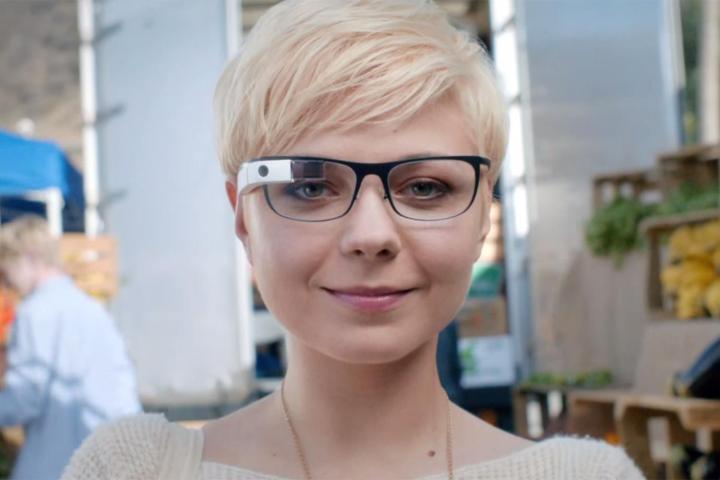
The company filed for a patent that sees a number of pretty major changes to the design of Google Glass, not only changing the source of the device’s power, but also changing how users would control it.
As part of the newly filed patent, Google Glass would have a control panel mounted on one of the arms. The panel, according to the patent, is basically a touchpad that would house an electronic circuit and a power source. On the end of the arm would also be found another parts housing. This housing may also contain other components, such as a processor, communications devices, Bluetooth chip, and so on.
It would also provide a little more balance to the arm, shifting some of the weight off the nose and onto the ear.

Perhaps even more interesting is that the housing includes the ability to connect batteries of multiple forms — whether they be AAA, AA, or even 9-volt. The batteries can be easily replaced and recharged, so if you had multiple sets, you could potentially keep your headset going for as long as you want.
Of course, neither of these options necessarily feel like a step forward for Google in the development of Glass. It’s unlikely we’ll ever see a version of Google Glass that uses replaceable batteries — instead, hopefully Google will simply focus its efforts on developing battery tech more.
The concept of using a touchpad to control the device is an interesting one. Google Glass was a little difficult to control when it was first released, however it would be nice to see the device have more gesture control and some of the bulk of the headset removed.
Editors' Recommendations
- Google is launching a powerful new AI app for your Android phone
- 5 things that would make the Google Pixel Fold next year’s best foldable
- The Google Pixel Watch isn’t great, but it could still save Wear OS
- Android 12L and Wear OS 3 show Google still isn’t serious about tablets and smartwatches
- 10 years on, Google Glass is still a Google I/O high point

